The Blessing of the Least Favorite Activity
Wendy Mogel’s best selling book, The Blessing of a Skinned Knee, resonated with me.
I can relate much of her message to camp and to my own family. I heard Dr. Mogel speak at a camp conference several years ago, and she continues to be active in the camp community. Many of our camp parents have heard her speak at school parenting events or have read her book. If you haven’t had a chance to read The Blessing of a Skinned Knee, I highly recommend it. In addition to sharing about the importance of letting our kids take healthy risks, and not always rescuing them from failure, Mogel gives many other valuable insights. She has recognized the value of camp experiences in the development of emotionally healthy kids, as you can read in the article “Camp Blessings” on her website.
A question I often get asked, especially by kids who haven’t yet been to camp, is “What if I don’t want to do an activity?” Sometimes it starts with a statement, “I don’t like horses. Do I have to do that activity?”
My short answer is, “You won’t be forced to do any activities, but you will still go with your group, and you will be encouraged to try.”
I think there are three main reasons kids don’t want to do a particular activity, and they are the same reasons why adults often choose to forgo some recreational options:
Negative Experience in the Past
A previous negative experience with the activity, usually not at camp and not with experienced instructors. Falling off a horse, being dragged behind a ski boat and not getting up, or getting lost on a hike are all examples of negative experiences that make a person naturally inclined not to want to try again.
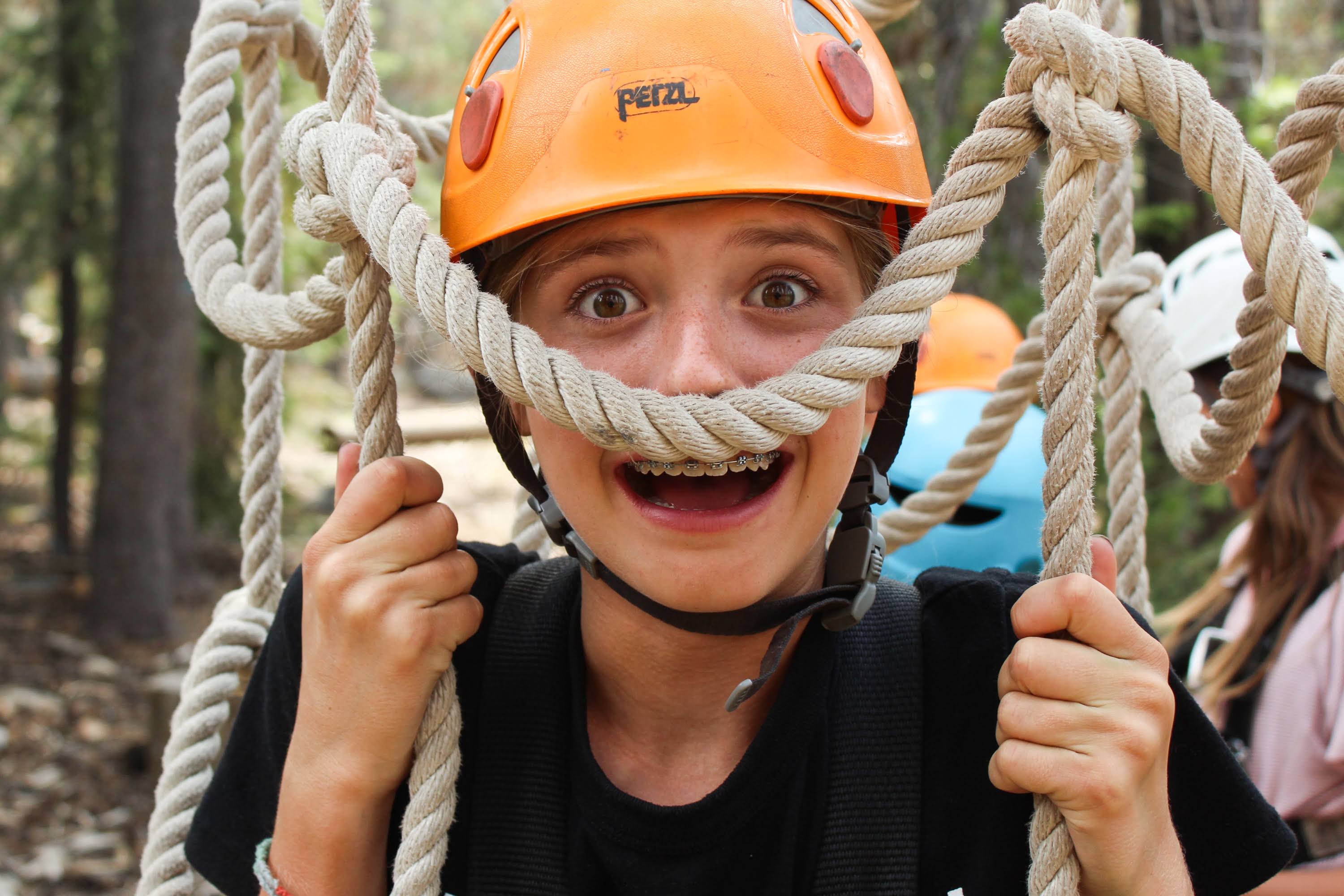
Fear
Fear of being humiliated. Fear of failure. Fear of heights. Fear of deep lake water. Fear of rocks. Fear of going to the bathroom in the woods. Fear of getting hurt. The list goes on and on.
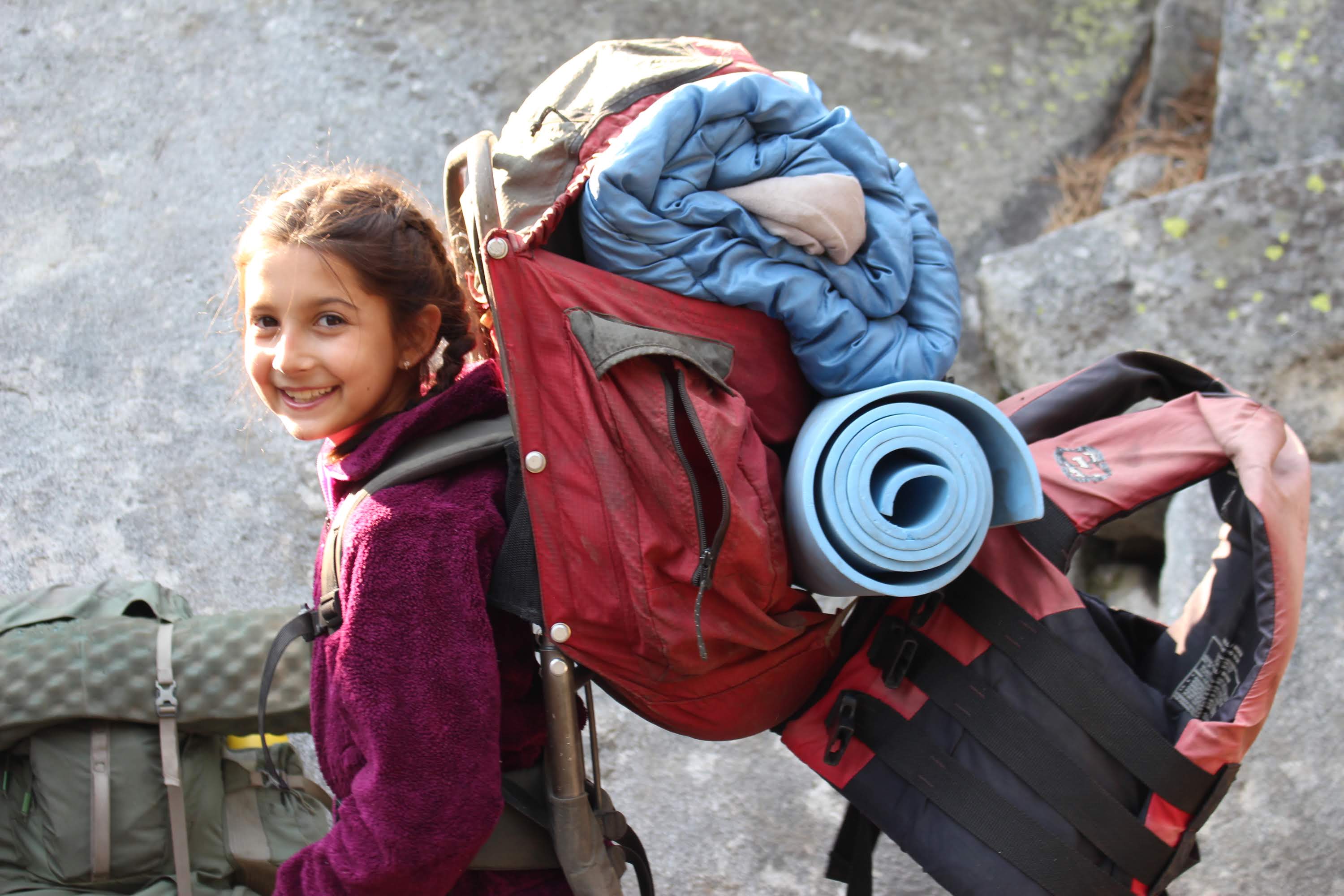
Not in Their Comfort Zone
Finally, another reason kids don’t want to try an activity is because, based on their perception of themselves or their past successes/failures, they think they won’t like it. It’s not in their normal repertoire of things they like and/or are good at.
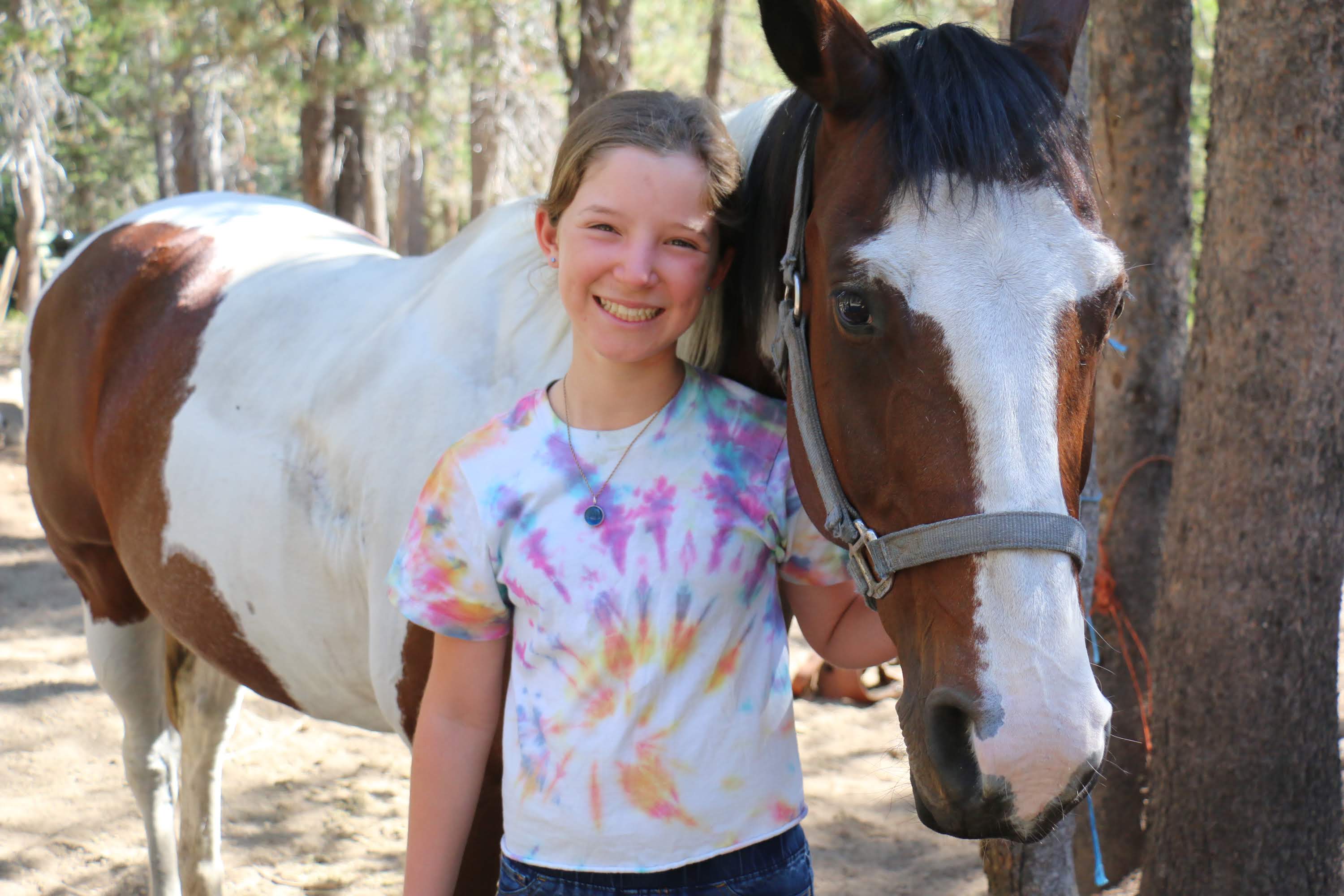
I’m sure there are other reasons for kids to not want to do an activity, but these are three that readily come to mind from what campers have told me over the years. Interestingly, the reasons kids don’t want to do an activity are the very reason trying the activity may be the best thing that happens at camp for that camper.
If a child doesn’t want to do an activity because of a previous negative activity, trying it at camp could lead to either a changed mind (and a new activity they like), or, at the very least, a not-as-negative experience to remember.
If a camper doesn’t want to do an activity because of fear, then trying the activity could be the most life-changing event that occurs for that camper during their camp stay. Overcoming fears and challenging oneself to attempt something that seems impossible can lead to great feelings of accomplishment and improved confidence. With the support and encouragement from cabin mates and counselors, campers feel on top of the world after successfully trying something they feared. For the camper with a fear of heights, climbing half-way up the ladder on the high ropes course will be celebrated as a huge accomplishment, and one that can make him/her proud. This is an example of something hard that leads to something good, a theme that Dr. Mogel stresses. The camp environment offers a supportive place for kids to learn how to overcome fears and accomplish things they didn’t think were possible.
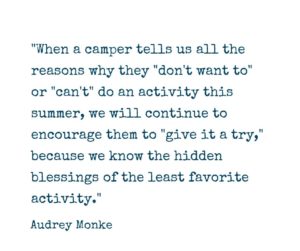 If a camper doesn’t want to do an activity because they don’t think they’ll like it based on their preferences or perception of themselves, trying something different offers an opportunity for expanded confidence. A camper who sees himself as non-athletic and more adept at target sports may shy away from the more physical activities, yet trying and accomplishing them could change his perception of himself in a positive way. A camper who likes shopping and clothes and sees herself as not an “outdoorsy” kind of person may dread going on a backpacking trip. Yet, the experience of cooking and sleeping outdoors could lead to an expanded view of herself and an appreciation for the many different facets of a personality. Sometimes, the activity a camper thought would be their least favorite becomes a favorite!
If a camper doesn’t want to do an activity because they don’t think they’ll like it based on their preferences or perception of themselves, trying something different offers an opportunity for expanded confidence. A camper who sees himself as non-athletic and more adept at target sports may shy away from the more physical activities, yet trying and accomplishing them could change his perception of himself in a positive way. A camper who likes shopping and clothes and sees herself as not an “outdoorsy” kind of person may dread going on a backpacking trip. Yet, the experience of cooking and sleeping outdoors could lead to an expanded view of herself and an appreciation for the many different facets of a personality. Sometimes, the activity a camper thought would be their least favorite becomes a favorite!
So, when a camper tells us all the reasons why they “don’t want to” or “can’t” do an activity this summer, we will continue to encourage them to “give it a try,” because we know the hidden blessings of the least favorite activity.
Article originally published at Sunshine Parenting.
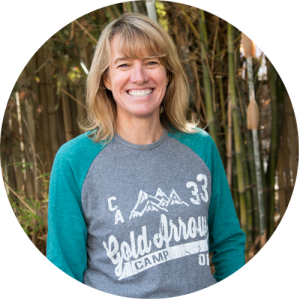
Audrey “Sunshine” Monke, MA, has been the owner of Gold Arrow Camp since 1989 and currently serves as the Chief Visionary Officer. In addition to her vision-casting and mentoring at GAC, Sunshine is an author (Happy Campers: 9 Summer Camp Secrets for Raising Kids Who Become Thriving Adults), podcast host, speaker and coach on the topics of parenting, social skills, and happiness. Find out more at her website, Sunshine Parenting.
Visit Sunshine Parenting for more summer camp-related posts & podcast episodes.
4 Reasons Not to Worry While Your Kid is at Camp
Listen to Sunshine Parenting Podcast Episode 91: 4 Reasons Not to Worry While Your Kid is at Camp.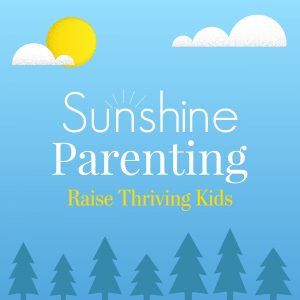
Worrying when our kids are away from us is normal for parents. Every time I’ve ever dropped my kids off for a new adventure without me, I’m excited for them. But I’m also concerned about their safety, secretly wishing they would just STAY HOME, then counting the days until they return. I know it’s not rational (few things about parenting are), but I believe my kids are always safest when they’re home with me.
If you are new to sending your kids to summer camp, let me reassure you that while they are away, you can relax your worrying muscles. I’ve spent more than three decades working at a summer camp, sending my kids to other camps, and participating in the networking and training of summer camp professionals. I know A LOT of camp directors, have visited many camps through the American Camp Association accreditation process, and am a faithful reader of Camping Magazine. I definitely know about camp.
In Episode 91 of the Sunshine Parenting Podcast, I chat with my longtime friend, Camp Owner/Director Maria Horner. Maria and her husband, Tom, have been the executive directors of Catalina Island Camps since 1995. In this episode, we discuss four reasons not to worry while your child is at camp.
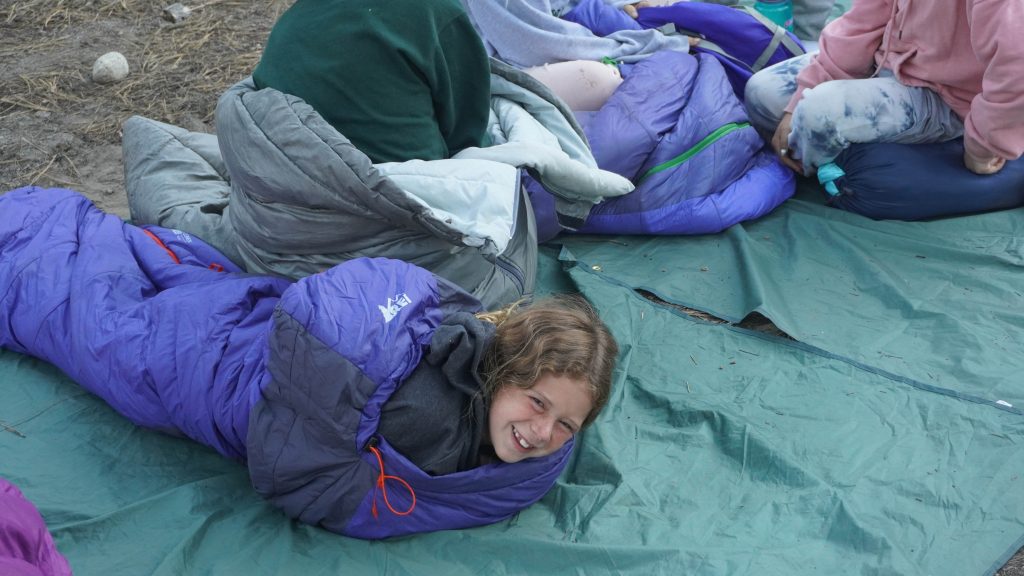
Reason #1: Accreditation from the American Camp Association
You have chosen a camp program that’s accredited by the American Camp Association. This means that the camp meets the ACA’s high standards to ensure a safe and nurturing environment for your child.
Reason #2: Your Communication with Camp
You have been in touch with the camp director. Always be upfront with any issues your child may be dealing with so that the staff can be prepared to help them. Take time review at all the material that the camp has sent you ahead of time and phone them with any questions you may have.
Reason #3: Preparation of Your Child
You have prepared your child for the experience:
- You’ve allowed your child the opportunity to sleep away from home with adults other than parents.
- You’ve reviewed the materials from the camp with your child.
- You’ve packed for camp together so they know what they are bringing with them.
- You’ve talked to your child about camp, focusing on the fun. Develop strategies with your child to address anything they may be feeling nervous about.
- You’ve expressed confidence in your child. Say, “I know you’re going to have a great time and enjoy this!”
Reason #4: Parent Preparation
You have prepared yourself for the experience:
- Manage your expectations.
- Be realistic about contact with your child while they’re gone.
- Don’t over analyze the communication you do get from your child.
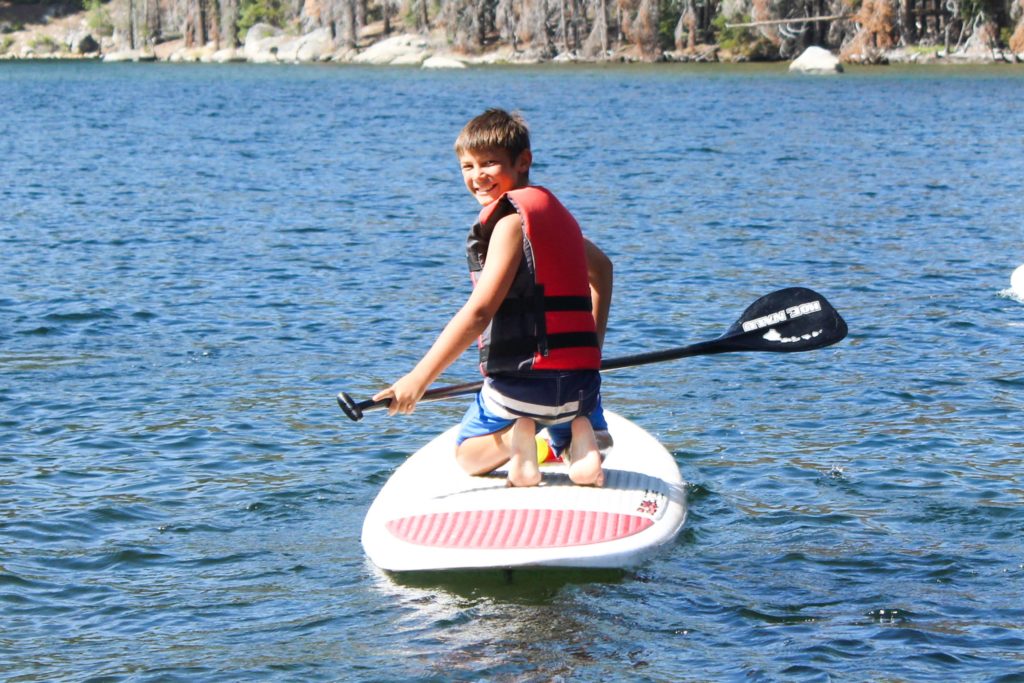
Want more reasons not to worry? Read this Sunshine Parenting post: 5 Reasons NOT to Worry While Your Kids are at Camp.
Quotes from this Episode
Audrey: “One of the reasons not to worry is actually the amount of training we do with our staff.”
Maria: “You chose an accredited camp, so if you’re coming to my camp, or if you’re going to any other camps in your Happy Campers group, those camps are all accredited by the American Camp Association, which means that those camps care enough to undergo a thorough peer review of its operation. And that includes everything from staff quality and training to emergency management–all things that they’re doing voluntarily to ensure that their program is top notch.”
Maria: “Camp professionals from around the country can volunteer to be what we call standards visitors. So every five years, a team of trained standards visitors go into each accredited camp and observe, both through documentation and practices actually in place, based on the identified standards, to see that the camps are in compliance with all of them.”
Maria: “If you’re going to allow me to take care of your child for two or three or four weeks during the summer, I’d actually think it stranger if you don’t want to talk to me first. I would imagine you would want to know who’s the person in charge of the place where your child’s going to be spending a lot of time. Pick up the phone and actually talk to the person who is running the show.”
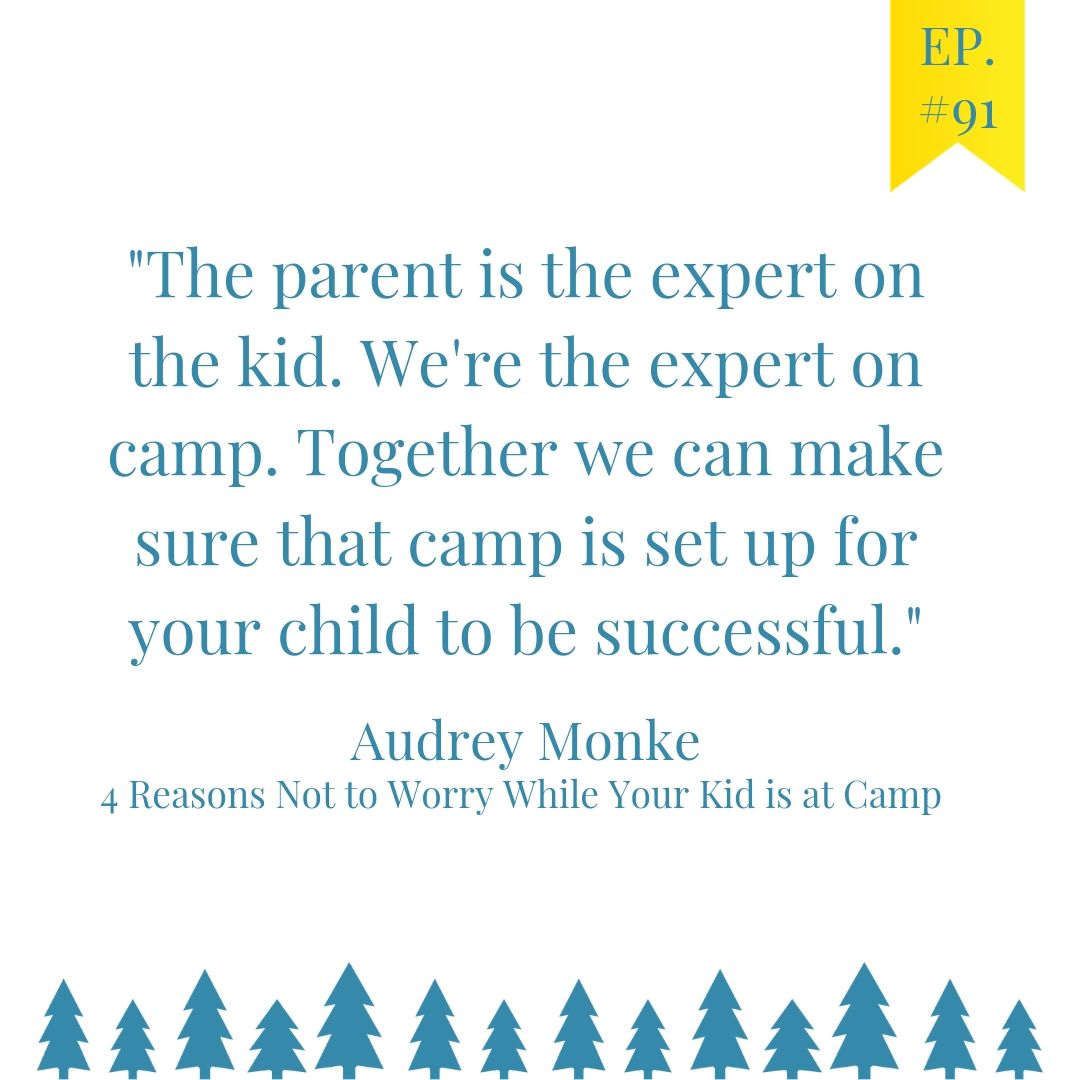
Maria: “I really encourage parents to be as upfront and transparent about your child as possible. We can do a lot at our camp and we can do it way more successfully when we know in advance. If we have to spend a few days figuring out what’s going on with the kid, either socially or behaviorally, or even with their food issues, that’s time lost. If we knew that up front, we would be able to meet those needs right from the very beginning.”
Maria: “Get online and watch videos from camp. Besides our promotional videos, we have a program with our go-pro cameras and the kids make videos every summer. And that’s a great way to get an insight into what camp looks like through the eyes of our campers.”
Maria: “I think you really want to focus on the fun when you talk with your child. I think definitely engage your child in conversation to get a sense of their excitement level and if there are things that they are nervous about, you work together to develop strategies for the child to be able to address those.”
Maria: “It’s okay for me to be nervous, as a mom. It’s not okay for me to project that onto my child.”
Audrey: “What I really want parents to communicate to their kids is: ‘Hey, at camp there are all these adults there to help you have a great experience. So if you need anything and I’m not there, here are some people you can talk to: your counselor, the camp director Maria, the head counselors.’ I think that if you look on the website, or call the camp, you can find out who those people are. I think that empowering your kid to talk to those people is really important.”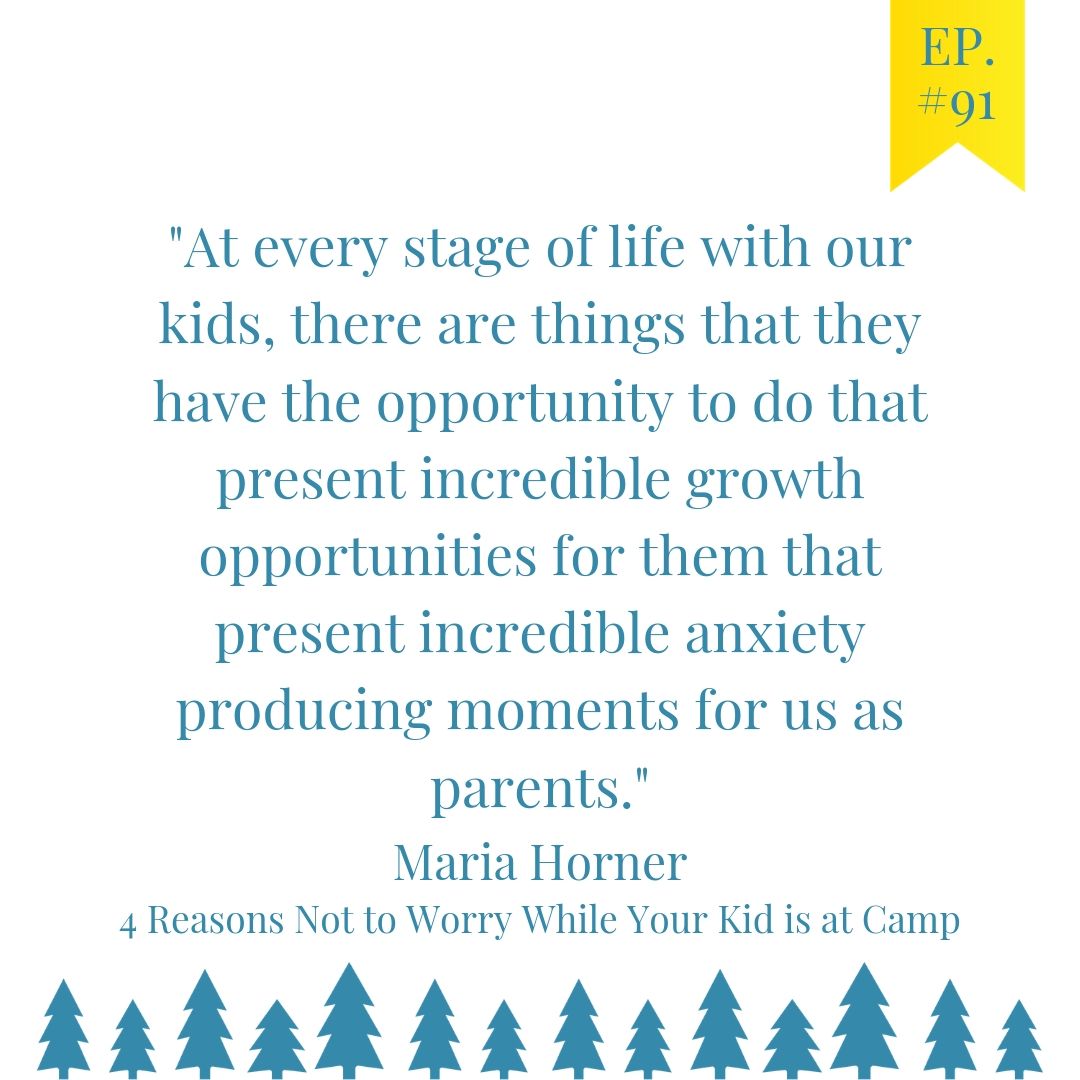
Audrey: “I do think we are very connected with our kids, which is a good thing and close relationships are fantastic. But the dark side is that it makes it a little harder–when your child’s doing something independent from you–for you to have the separation.”
Maria: “One of the things that I often tell parents is to really take advantage of this opportunity. Consider what it means to have some time either just to yourself or for you and your spouse together. That doesn’t happen very often in the craziness of life and raising children.”
Maria: “We tell kids, it’s okay to miss home when you’re at camp. You can miss home and still have fun at camp at the same time. Those two things aren’t in conflict with one another. The same thing is true for the parent’s side. Of course, you miss your child and worry about them. That’s to be expected. And you can still allow them to have this amazing growth experience, even if you’re a little bit nervous.
Audrey: “Give yourself permission to enjoy yourself. Spend some more time on a hobby you haven’t had time for, go out to dinner, go to movies–there’s nothing wrong with that. And actually, you giving your child the gift of a more relaxed, happier parent when they get home from camp is amazing.”
Maria: “It okay to have an incredible experience not all together. It’s okay to let your child do fun things without you and it’s okay to do fun things without them.”
Audrey: “It’s always this kind of mixed bag; you’re excited for your kid when they have some new adventure or get some great job far away, but then you’re also like, ‘Oh bummer. They’re kind of far away.’ I think always keeping these things in mind that it’s okay to have both feelings.”
Resources & Related Posts
5 Reasons NOT to Worry While Your Kids are at Camp
100 Questions about Summer Camp
Why choose an ACA accredited camp?
What are good questions to ask when selecting a camp program?
Ep. 10: Homesick & Happy with Michael Thompson, Ph.D.
Ep. 76: Partnering with Your Child’s Camp Director
Ep. 37: How to Prepare for Overnight Summer Camp
Ep. 87: The Impact of Camp Experiences
How to Raise an Adult, Julie Lythcott-Haims
How Camp Helps Parents Raise Adults
Other Sunshine Parenting Podcast Episodes featuring Maria Horner:
Ep. 22: Jedi Mom Tricks, Part 1
Ep. 33: Jedi Mom Tricks, Part 2
Ep. 42: Jedi Mom Tricks, Part 3
Links
Podcast originally published at Sunshine Parenting.

Audrey “Sunshine” Monke, MA, has been the owner of Gold Arrow Camp since 1989 and currently serves as the Chief Visionary Officer. In addition to her vision-casting and mentoring at GAC, Sunshine is an author (Happy Campers: 9 Summer Camp Secrets for Raising Kids Who Become Thriving Adults), podcast host, speaker and coach on the topics of parenting, social skills, and happiness. Find out more at her website, Sunshine Parenting.
